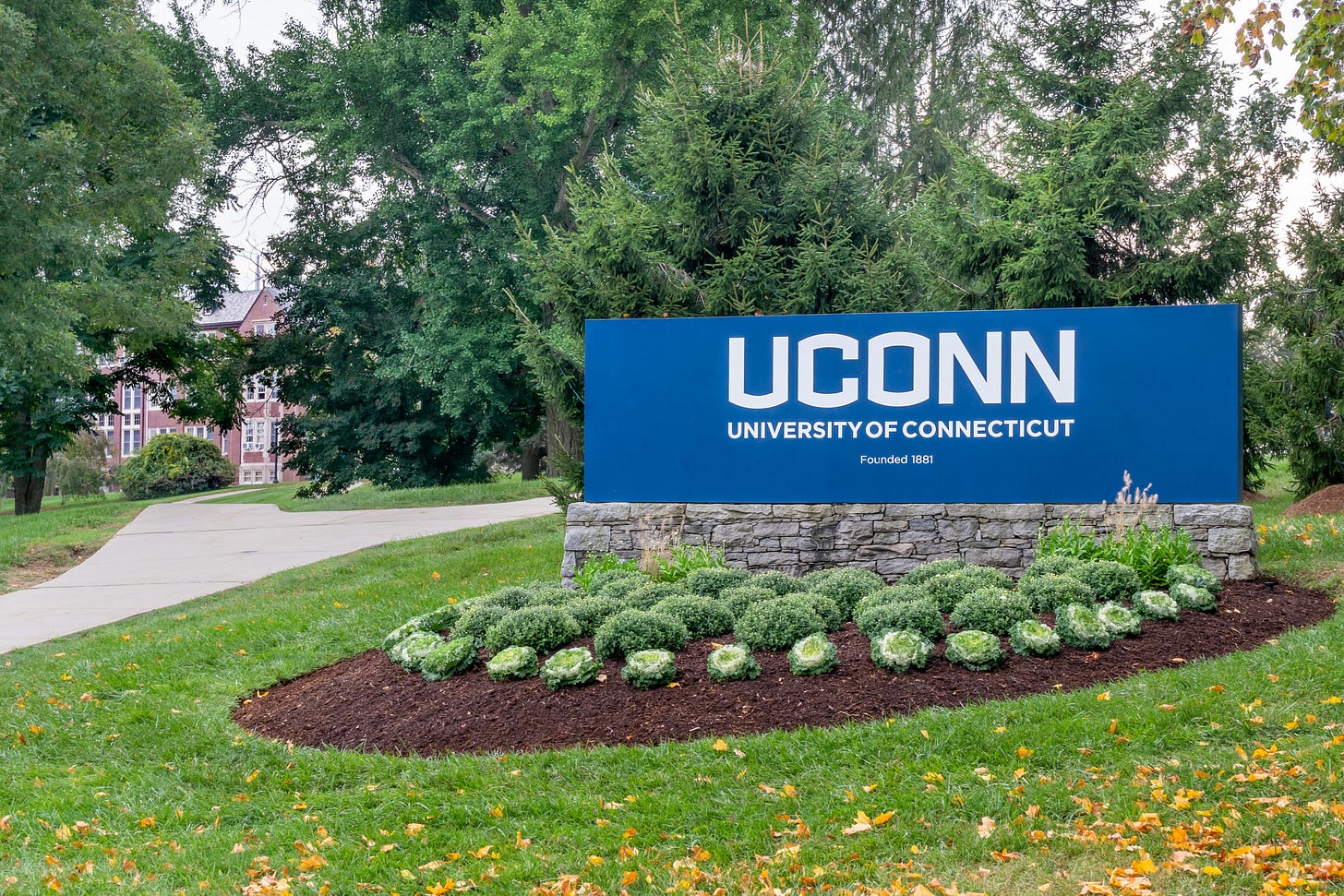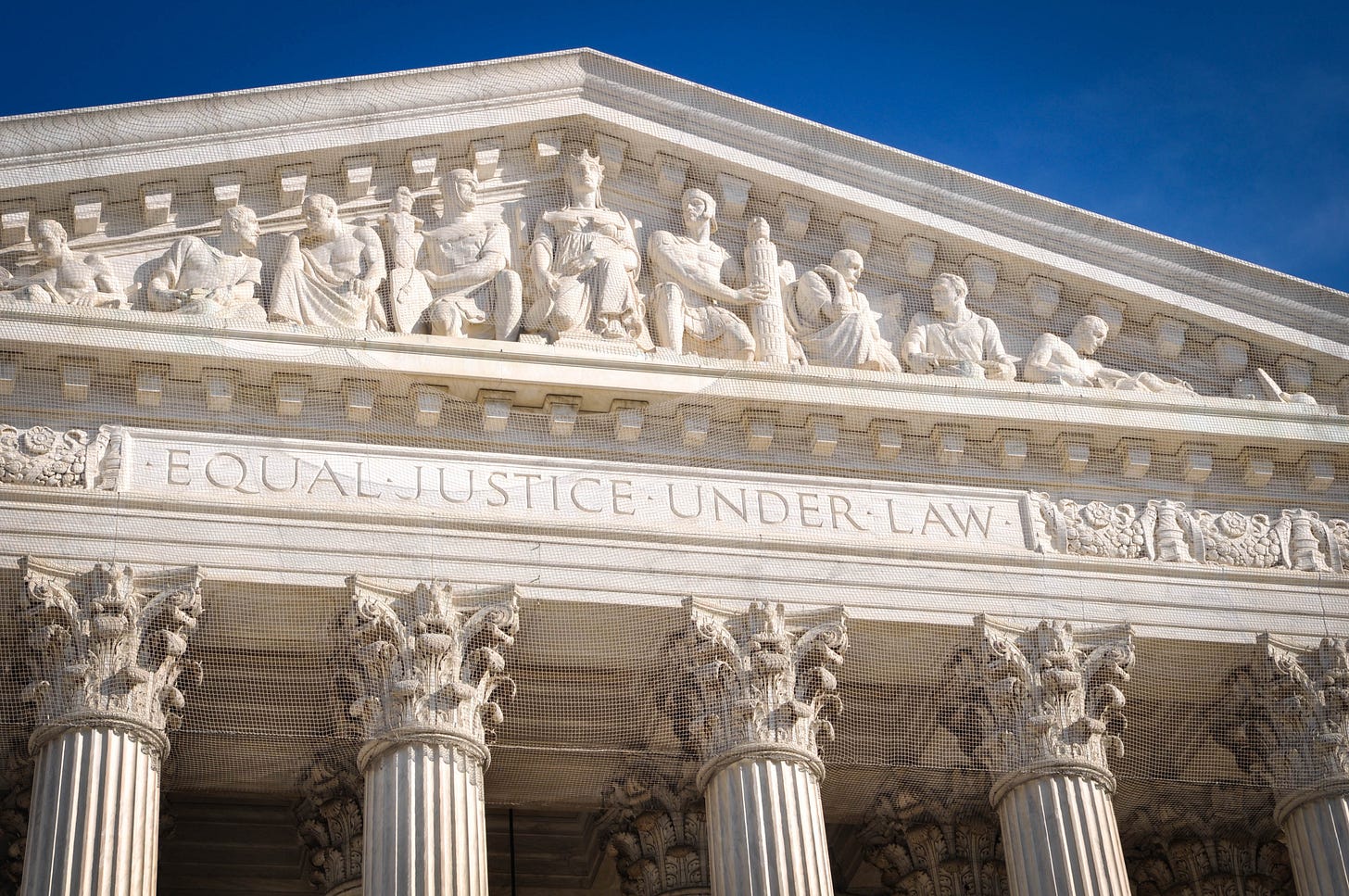E-Pluribus | July 6, 2021
Free speech or hate speech at UConn, the Supreme Court sides with freedom, and teaching history honestly.
A round up of the latest and best writing and musings on the rise of illiberalism in the public discourse:
Alex Morey: UConn group to keep pursuing free speech initiative despite student government shutout, threatening messages
An initiative by some members of University of Connecticut’s student body organization to promote and support free speech on campus was met with such pushback that the organizers suspended their efforts. Alex Morey writes at the website of the Foundation for Individual Rights in Education that the atmosphere on the UConn campus has become so hostile to freedom of speech, equating it with hate speech, that even those who supported the effort were often to intimidated to make their voices heard.
The men all described a stunning and seismic shift in the free speech climate at UConn. One that has so effectively presented “free speech” as nothing more than a vehicle for “hate speech” — like white supremacy, homophobia and transphobia, and more — that many UConn students who broadly support civil liberties are suddenly wary of doing so publicly for fear of being labeled a bigot.
It was an incredible amount of drama,' Hernández says. 'They were calling us racists, and misogynists, and homophobic. We got ISIS beheading videos sent to us. They were using slurs.' Pictured: One such message Hernández received.
“Clearly we know that hate speech is protected by the First Amendment. We know that this stuff has been litigated for a century. We know what speech is protected and what is not,” Hernández says. “We have all these ways that the university addresses hate or violence or violent speech. All those mechanisms exist already.”
Hernández adds, “Their argument is very different from that, though.”
Their argument, as the group describes it, is that because promoting free expression broadly might create an inroad for a small amount of offensive expression, the entire concept of free expression is corrupt and unworthy of discussion. Defend free expression, and you’re promoting hate.
[…]
“There are so many people, too many people, that are afraid to speak their opinion publicly because they fear that they would lose support from their friends, from their peers, to their organizations, or to the jobs that they work in. Especially those who happen to be more liberal and are publicly in support of many activist groups or activist organizations,” he says. “If it was exposed that they disagreed whatsoever with anything, the backlash towards them could be extreme.”
Read it all here.
National Review: A Good Day for Free Speech and Free Elections
The editors of National Review found reason for optimism in two Supreme Court decisions handed down on the final day of the court’s recent session. Battles over voting rights and the role of money in politics (and government’s role in regulating it) are not likely to go away soon, so the firm majority coming down on the side on the right of states to regulate elections and the privacy of donors (and thus free speech) is a positive sign.
The Court provided five “guideposts” that will help courts decide cases and dispose of flimsy ones: courts should have a sense of proportion about “the size of the burden imposed. . . . Mere inconvenience cannot be enough”; courts should ask how far “a voting rule departs from what was standard practice” when the statute was written in 1982; small disparities in the impact of laws on minority-group voting are less likely to violate Section 2, especially where the voter-suppression theory relies on differences “with respect to employment, wealth, and education”; courts “must consider the opportunities provided by a State’s entire system of voting” rather than individual provisions; and courts should also consider “the strength of the state interests served,” specifically including the powerful state interest in preventing fraud. “It should go without saying,” Alito added, “that a State may take action to prevent election fraud without waiting for it to occur and be detected within its own borders.”
The Court’s renewed focus on the language of the law passed by Congress, and its guidance in how to apply it in practice, is welcome. The doors of the federal courthouse should always remain open to protect all Americans — and black Americans in particular, given the nation’s painful history — from laws that result in real discrimination in who is able to vote. But federal law was never intended to put every state in the Union in a permanent straitjacket to the point where even temporary emergency voting rules adopted to manage a once-in-a-century pandemic can never be revisited. Brnovich is bad news for junk lawsuits such as the Justice Department’s suit against Georgia. But it is good news for letting the people’s representatives protect free, fair, open, and orderly elections. Trust in democracy requires nothing less.
Read the whole thing.
David French: Loving Your Country Means Teaching Its History Honestly
Conservatives and Republicans have pushed back hard against Critical Race Theory, the 1619 Project and so-called “anti-racism” dogma, and for good reason. This, however, does not mean that there is no value in facing uncomfortable facts about American history. David French writes at Time that a clear-eyed view of the past is in no way a conflict with love of country; on the contrary, it demonstrates a willingness to learn from past mistakes (or even past evils) and how they have been overcome, and also reveal the work that is still left to do to become a more perfect union.
[S]everal days ago I participated in a fascinating online conversation centered around the question, “When did you first learn about the post-Reconstruction era in the American South?” This was an era of terrifying violence and repression, the era that implemented Jim Crow, and the era that ultimately helped trigger a massive “great migration” where millions of Black Americans fled their homes in the South for cities in the North and West.
I did not learn about these events in my Kentucky public school education. I didn’t learn about, for example, the Tulsa Race Massacre of 1921 or the Wilmington Insurrection of 1898 until I was well in my 40s.
Had I rooted my love of country in the greatness of American history—and there is undeniable greatness—then learning the sheer extent of post-Civil War violent racial oppression would have been deeply disorienting. And it is often disorienting to those who are not taught to stare history in the face, to confront evil and cowardice even as we celebrate virtue and courage.
[…]
We should approach history with a sense of curiosity and security. You won’t make me hate my home. You can, however, motivate me to preserve what is pristine and repair what is broken. You can make me proud of the beauty and sorry for the injustice.
My own family story mirrors the best and worst of our national story. There’s heroism. Ancestors served in Valley Forge and traveled across the ocean to fight in two world wars. There’s betrayal. In the Civil War, the vast majority of my family wore gray. I’m grateful for their virtues, and I’m convicted by their sins. Together, they help motivate me to seek justice in my own turn on this earth.
Read it all at Time.
Around Twitter
Battles lines have been drawn on anti-CRT legislation. Christopher Rufo is pushing back against some conservative heavy hitters:
A related conversation on anti-CRT legislation:
And finally, anecdotal evidence, but powerful nonetheless, on how Critical Race Theory is impacting education whether or not it’s being taught directly to students:










